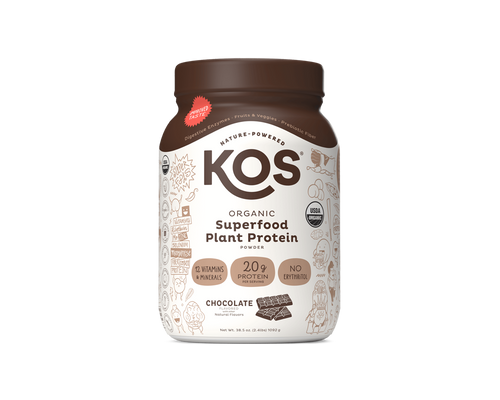Table of Contents
The Digestion Timeline of Protein: Understanding Protein Absorption in the Body
Are you a wellness enthusiast looking to optimize your protein intake? Or simply curious about the process of protein digestion in your body?
Understanding how long it takes for the protein to be absorbed in the body is crucial to achieving your health and fitness goals.
In this blog, we will dive deep into the world of protein digestion and discuss all you need to know about how long it takes for protein to digest.

How Does Protein Digestion Work?
Protein is an essential macronutrient that plays a vital role in the growth, repair, and maintenance of various tissues in the body, including muscles, bones, skin, and hair. It is made up of building blocks called amino acids, which are absorbed by the body through the process of digestion.
The process of protein digestion starts in the stomach, where the acid breaks down the protein into smaller fragments called peptides. From there, the peptides move to the small intestine, where they are broken down further into individual amino acids. These amino acids are then absorbed into the bloodstream and transported to different parts of the body where they are needed.
How Long Does It Take for Protein to Be Absorbed?
How long does it take for protein to digest? As it turns out, the answer isn't as simple as you might think.
In fact, a lot of factors influence the rate at which your body breaks down protein and uses it to build and repair muscle tissue.
First of all, the type of protein you consume. Different types of proteins have different digestion rates. Having said that, we can divide protein into two major groups.
Fast Digesting Proteins
It takes about thirty minutes to two hours for fast-digesting proteins to be absorbed by the body fully. These proteins are ideal for post-workout recovery when the body needs to replenish muscle protein stores quickly. However, they are not suitable for prolonged periods of satiety as the body quickly absorbs them.
Slow Digesting Protein
On the other hand, slow-digesting proteins, such as plant-based proteins, take longer to be absorbed by the body. It takes approximately three to four hours for them to be fully absorbed by the body. These proteins are ideal for those who want to feel fuller for longer periods and prevent muscle breakdown during sleep.
- Another factor that affects protein digestion is the composition of your meal. If you consume protein alongside carbs and fats, the digestion process may be slowed down significantly. On the other hand, consuming protein by itself on an empty stomach can speed up digestion and absorption.
Can the Body Absorb More Than 30g of Protein?
As we all know, protein is essential for building and repairing muscles, which is why gym-goers consume large amounts of it.
But there has been a debate about how much protein the body can actually absorb at once. Some believe that the body can only handle 30g of protein, while others argue that there is no limit.
So, can the body truly absorb more than 30g of protein?
According to most studies, to optimize muscle protein synthesis (MPS), a range of 25-40 grams of protein is typically required, with the actual amount depending on variables such as a person's weight, age, and activity level, as well as the quality and timing of the protein intake. For example, more active individuals may require more protein to support muscle growth and repair.
How Long Does Protein Stay in Your Body After Eating?
After consuming protein, the amino acids enter your bloodstream and can remain in circulation for up to six to seven hours.
However, the actual digestion and absorption process typically takes much less time, with most of the amino acids being absorbed in the first two hours after consumption. The amount of protein that remains in the body depends on the individual's metabolic rate and physical activity level.
It is recommended to consume protein at regular intervals and in smaller doses throughout the day to maintain an adequate supply of amino acids in your bloodstream.
So what does this all mean for your protein intake?
If you are looking to amp up your protein intake or improve your athletic performance, consuming protein within 30 minutes to two hours after a workout may provide the most beneficial results.
The Final Verdict
Understanding how long it takes for the protein to be digested and absorbed is essential for achieving your health and fitness goals.
But here’s the catch: There's no one-size-fits-all answer to the question of how long does it take for protein to digest.
The time it takes usually depends on the type of protein and the individual's body weight, muscle mass, and physical activity level, but it usually is about 3 to 4 hours.
Fast-digesting proteins are ideal for post-workout recovery, while slow-digesting protein is suitable for prolonged periods of satiety.
Remember, it is essential to consume protein at regular intervals throughout the day to ensure that the body has a constant supply of amino acids.
FAQs
How Long Does It Take for Protein to Be Absorbed?
Protein digestion time depends on various factors, including the type of protein consumed, the amount consumed, and the individual's metabolism. Fast-digesting proteins take about 30 minutes to two hours to be absorbed while slow-digesting proteins like plant-based proteins can take up to three to four hours for complete absorption, with most digestion and absorption happening within the first three to four hours.
Can the Body Absorb More Than 30G of Protein?
While there has been a debate about how much protein the body can absorb at once, studies suggest that a range of 25-40 grams is typically required to optimize muscle protein synthesis, depending on several factors, such as a person's weight, age, and activity level.
How Long Does Protein Stay In Your Body After Eating?
After consuming protein, the amino acids can circulate in your bloodstream for up to six to seven hours, but most of the absorption occurs within the first two hours. To ensure a steady supply of amino acids in your bloodstream, it's recommended to consume protein at regular intervals and in smaller amounts throughout the day.




